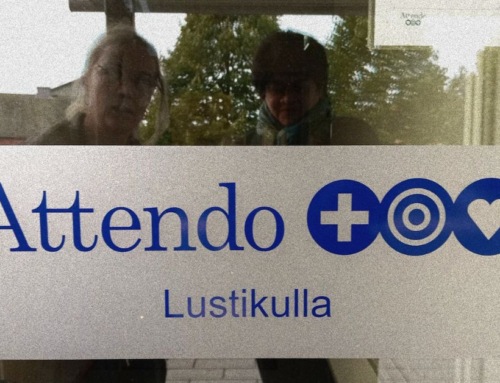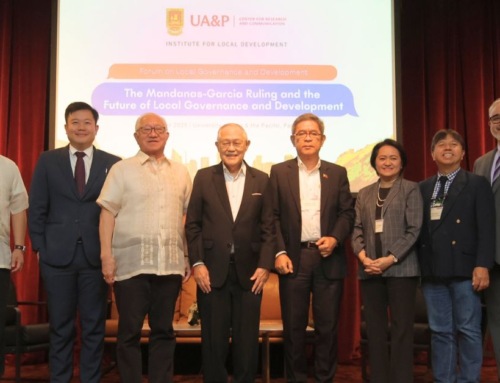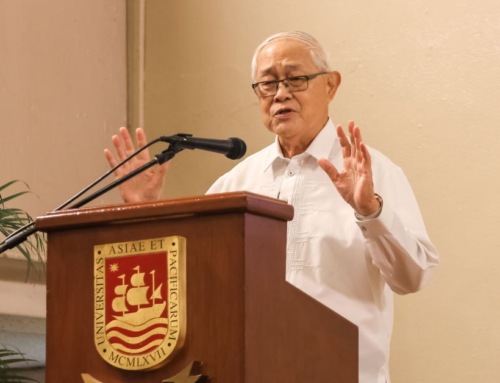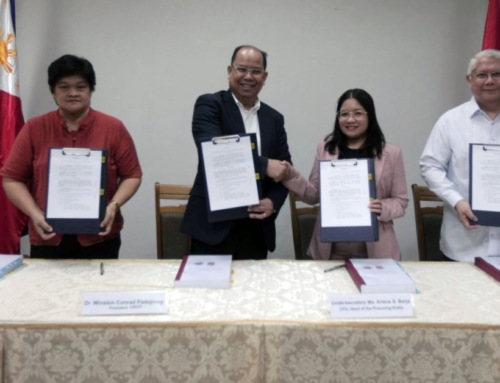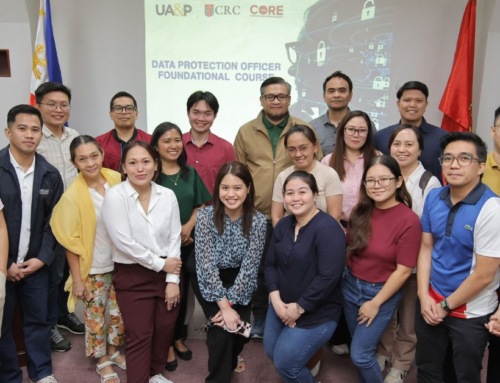This COVID-19 pandemic has shaken the lives of those desiring to work overseas, as well as those coming home.
For those applying for overseas work, the good news is that some Asian countries, such as Malaysia, Taiwan, Hong Kong and Singapore are ready to resume employment of migrant workers. This comes at a time when the vaccine for COVID-19 is yet to be available nine months from now and we are uncertain about the lifting of lockdown in many regions in the country.
The overseas employment application process is far from the usual where the applicant would go to the licensed recruitment agencies and different government offices carrying their passports and documents, attend the Pre-Departure Orientation Seminar (PDOS), and comply with other requirements. Before deployment, most of the process will now take place online, including PDOS.
Every step of the way, the OFW will now have to abide by the guidelines for travel from their town to Manila, at the airport and upon arrival. Once they arrive in their country of work, there will be more procedures and guidelines, not to mention the adjustment to their employer, culture, climate, food and everything else that are not the same back home. Communication with family left behind may be easy, thanks to gadgets and internet connection but Day Off, attending religious or social activities may be difficult, especially for domestic workers. Employers see the risk of their worker going out on public transportation, mingling with people everywhere and then come back to the employer’s family. And who knows what other requirements government may impose after the COVID-19 pandemic! Our OFWs will have to observe those as well.
Why then should they seek work overseas? The quick answer is that there is a surge in unemployment as a consequence of the COVID-19 pandemic and the months of lockdown – and leaving the country may be the only hope they have for landing a job.
For those returning from overseas work, the scenario is no different. Recall that the first batch of OFWs repatriated from different countries numbered 13,000 in April. It increased to more than 20,000 in May. For most of them, their reason for return is not for vacation or end of work contracts. Hundreds of them are beneficiaries of the Kuwait amnesty program that granted free airfare to OFWs who have been staying for many months and for some, a number of years now in the deportation center, PAM shelter, and the POLO-OWWA shelter. There are also thousands who have been repatriated via special flight from different parts of Saudi Arabia. From North America, members of the crew from non-operational cruise ships have come home, some after being stranded in Miami and Barbados.
When they arrive in the Philippines, OFW returnees are required to do the 14-day quarantine. The Overseas Workers Welfare Administration (OWWA) faces the huge challenge of meeting those repatriated OFWs at the airport, bringing them to Red Cross for quick COVID-19 testing, then taking them to partner hotels for accommodations and providing meals during quarantine period. Those who go home to Luzon provinces are taken by bus that can load only 25 passengers. The thousand others who will go to Visayas and Mindanao are still waiting for the proper transport arrangements.
Once they are finally reach home, they will see how different the landscape is in their community. Schools are closed, few people out on the streets all wearing masks, very few businesses in operation and long queues of people standing 1 meter from each other. Soon they realize that the remaining jobs in their community are in government health, security, goods distribution, money sending and remittances, banks, drug stores, roving kulong kulong selling fish, vegetables or longganisa, etc., public market following scheduled operations and delivery from online selling mostly of the same products: cellphones, cooked food or beauty products.
It will be a sad realization that indeed, they have come home to the right place but at a wrong time.
We have seen that for many, reintegration is the most difficult stage of overseas work. This time, it will not be easier. Sustainable reintegration into their communities will take a longer time for our repatriated or returnee OFWs because of the countless people who have lost their jobs or could hardly engage in livelihood as a consequence of the COVID-19 pandemic.
Although headed to opposite direction: one leaving, the other coming back, OFW deployees and returnees brace themselves for life in the ‘new normal’. The deployee may not be aware of the changes that have taken place in their new country of work, while the returnee who has clear memories of how it was before, will be both sentimental and overwhelmed. One will be welcomed by foreigners, the other by their own family and community.
So what are the things common to OFW deployees and returnees in their journey amidst the pandemic? Both face restrictions and have to cope well. They will be conscious of health like they never were before, more aware that staying healthy is the key to a happy life. They will be less affectionate and observe social distancing. Both will value their work and earnings, think of survival and give up much of the leisure they had enjoyed before. Both will be alert and mindful of opportunities with a strong desire to survive and move on, rather than be engulfed by the threat of defeat. Clearly, both will have to life with the conditions of the ‘new normal’ which is yet to take shape and soon to evolve.
———————————————————–———————————————————–
Learn more about CRC’s contributions in Migration and Overseas Filipino Work. In this field, CRC has brought about in-depth insight into the lives of the millions Filipino migrant workers whose contributions make a sizeable chunk of the Philippine economy – from their education and recruitment in the Philippines to their concerns and life strategies while working overseas, to their successful reintegration upon returning to the country.
The Bank of the Philippine Islands (BPI) Foundation, Inc., established the BPI Professorial Chair for Migration and Overseas Filipino Work (MOFW) on February 3, 2014. For years, the holder of the professorial chair has been undertaking intensive research on migration and development to guide policy makers, and publish teaching resource materials on the integration of migration into the K-12 Basic Education Curriculum subjects.
To find out more about CRC, send an email to [email protected], or message +639054280727, or follow us on LinkedIn. You can also find us on Facebook.

